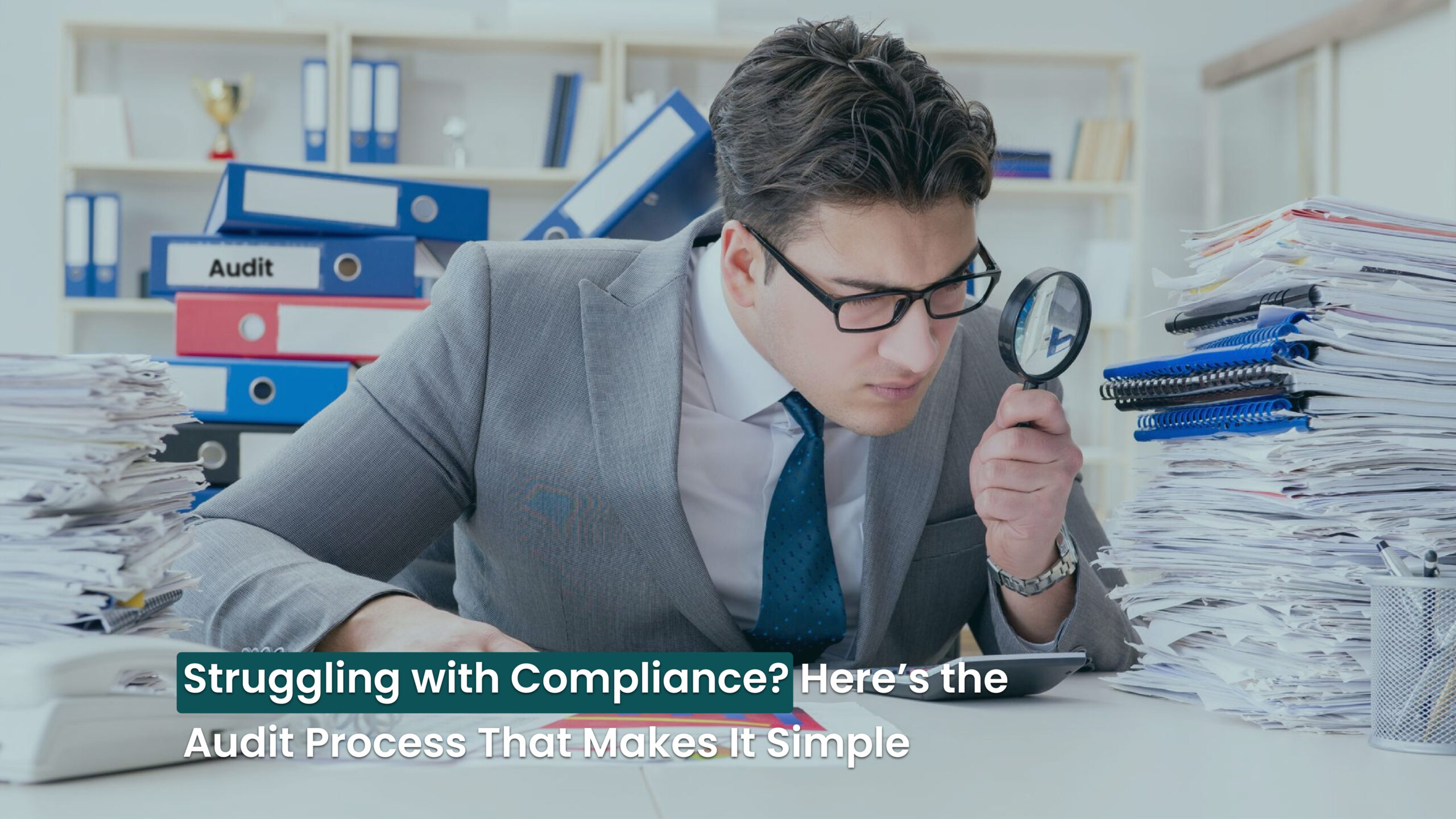Simplify Compliance for Businesses — It started with a knock on the door.
Ali, the owner of a small textile unit in Faisalabad, had no idea that a random visit from the tax department would throw his entire operations into chaos.
Despite running a clean business, he had no clear records, no audit trail, and no system to prove compliance. His team scrambled. Penalties followed. Business slowed down.
All because of one missing file and no process to back things up.
Ali’s story is not unique. More than 70% of SMEs in Pakistan face fines or reputational damage simply due to poor documentation and weak compliance systems.
But here’s the good news: it doesn’t have to be this way.
Let’s talk about how to simplify compliance for businesses with a system that’s simple, scalable, and saves you from sleepless nights.
Why Do Most Businesses Struggle with Compliance?
Let’s be honest—compliance is rarely anyone’s favorite part of running a business.
Most owners feel like:

- They’re constantly behind on regulatory changes
- Audits are terrifying
- Their files are all over the place (some physical, some in random folders online)
- They’re “doing okay” until someone knocks and asks for a report they didn’t prepare
And the truth?
It’s not a lack of intent. It’s a lack of a system.
This is why how to simplify compliance for businesses is one of the most searched concerns among SMEs today.
5-Step Audit Process That Makes Compliance Easy
Step 1: Know What Rules Apply to You
Ali’s mistake? He thought a basic tax filing was all he needed.
Every industry has different regulations—labour, taxation, environment, safety, digital data, and more.
Make a checklist:
- Are you registered with the right authorities?
- Are you supposed to file quarterly or annually?
- Do you need certifications (like ISO, environmental NOCs, or SECP disclosures)?
Knowing what’s required is the first step to staying ahead.
Step 2: Set a Compliance Calendar (Like You Do for Birthdays)
One of our retail clients once missed a sales tax filing by just 3 days. The fine? PKR 50,000.
Not because of fraud. Just a missed date.
Whether it’s a simple Google Calendar, Trello board, or even a printed wall calendar—mark:
- FBR filing dates
- Sales tax deadlines
- Employee benefits reports
- Audit periods
You’ll be shocked how this one free tool can help reduce stress during compliance audits drastically.
Step 3: Keep All Records Together (Digitally AND Physically)
We helped one construction firm digitize 4 years of disorganized documents.
Results?
- 70% less time spent in their next audit
- No fines
- They even landed a government contract because their records were “impressively clean”
Use folders like:
- Finance
- HR
- Vendor & supply chain
- Tax returns
Tools: Google Drive, OneDrive, Dropbox—whatever works for your team.
This is how to simplify compliance for businesses that don’t want to hire full-time accountants.
Step 4: Internal Mini-Audits Every Quarter
Think of this like checking your oil before a long road trip.
Set aside 1 day every 3 months. Check:
- Are employee salaries properly recorded?
- Are tax payments filed with proof?
- Is your licensing still valid?
Quarterly check-ups align with best practices for compliance audits, and they make annual reviews a breeze.
Step 5: Bring in a Professional – Yes, Even Just for a Day
Hiring a full-time compliance officer might not make sense for small businesses.
But what if you had a trained expert audit you for just one day every 6 months?
That’s exactly what we did for a Lahore-based digital agency. They were terrified of their first FBR audit. After a quick 3-hour session, we gave them a checklist, organized their files, and flagged one missed tax filing. They corrected it—and avoided a PKR 100,000 fine.
That’s how affordable solutions for audit and compliance challenges work: short, focused, practical.
What You Actually Gain from Getting Compliance Right?
It’s not just about avoiding legal problems. Here’s what happens when you finally take control of your compliance process:
✅ Your business looks attractive to investors and banks
✅ You can bid on high-value government or corporate contracts
✅ You sleep better, knowing you’re covered
✅ You build a strong, credible brand in your industry
This is why the importance of compliance audits for businesses goes far beyond ticking boxes—it’s about being ready for growth.
How Msafdar Can Help — Real Support, Not Just Advice
If you’re tired of last-minute scrambles, confusing audits, or fear of “what might go wrong”—Msafdar is your solution.
With 20+ years in audit, taxation, and financial compliance, Msafdar doesn’t just give advice—he steps in to implement real solutions. Whether it’s setting up your audit files, running internal reviews, fixing record-keeping issues, or helping you pass your next compliance check smoothly—he’s walked this road with hundreds of businesses just like yours.
And most importantly?
He knows how to simplify compliance for businesses without making it feel like rocket science.
Whether you’re a startup or an established company, Msafdar brings calm, clarity, and compliance—all in one service.
FAQs
Q1: Do I need a full audit even if I just started my business?
Yes. Even new businesses benefit from a simple compliance setup—it saves time and penalties later.
Q2: I don’t have a full-time accountant. Is this still for me?
Absolutely. Most clients who work with Msafdar are small businesses with limited teams. That’s why we make it easy and affordable.
Q3: What’s one thing I can do right now?
Create your compliance calendar. Today. Start with 3 deadlines: tax, payroll, licensing.
Q4: How much will this cost me?
Less than what a single fine or legal issue will. Msafdar offers flexible and affordable solutions tailored to your budget.
Q5: What’s the #1 mistake most businesses make?
They think they’re “too small” to worry about compliance. That delay ends up costing them more than they realize.

